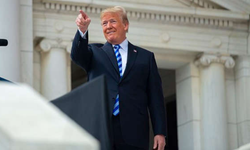This assertion has sparked widespread intrigue and concern, leading to a flurry of misinformation and speculation online. To clarify the situation, a thorough fact-checking effort has been undertaken to assess the veracity of these claims.
The rumor gained traction after a video clip circulated on social media, alleging that the Hells Angels were mobilizing to tackle the presence of Venezuelan gangs in Aurora. The clip, accompanied by sensationalist commentary, quickly captured public attention, raising questions about the involvement of organized crime in local conflicts and the potential impact on community safety.
Upon investigation, it has become clear that there is no substantial evidence to support the claim that the Hells Angels are actively engaging in a conflict with Venezuelan gangs in Aurora. Law enforcement agencies and local authorities have not reported any such developments, and no official statements or credible sources have confirmed the existence of such a situation.
The origins of the viral clip appear to be rooted in misinformation, with no verified connections to real-world events or law enforcement activities. The Hells Angels, known for their involvement in various criminal enterprises, have not been publicly linked to any planned intervention or organized actions targeting gangs in Colorado.
It is essential to approach such claims with caution and rely on verified information from credible sources. The spread of misinformation can lead to unnecessary fear and confusion, detracting from legitimate community concerns and public safety issues. As of now, there is no evidence to suggest that a confrontation between the Hells Angels and Venezuelan gangs is occurring or imminent in Aurora, Colorado.
In summary, the viral video and accompanying claims about the Hells Angels' involvement in a local conflict are unfounded. Fact-checking efforts confirm that there is no current evidence to support these sensationalist assertions, highlighting the importance of scrutinizing sources and verifying information before accepting or sharing such claims.














